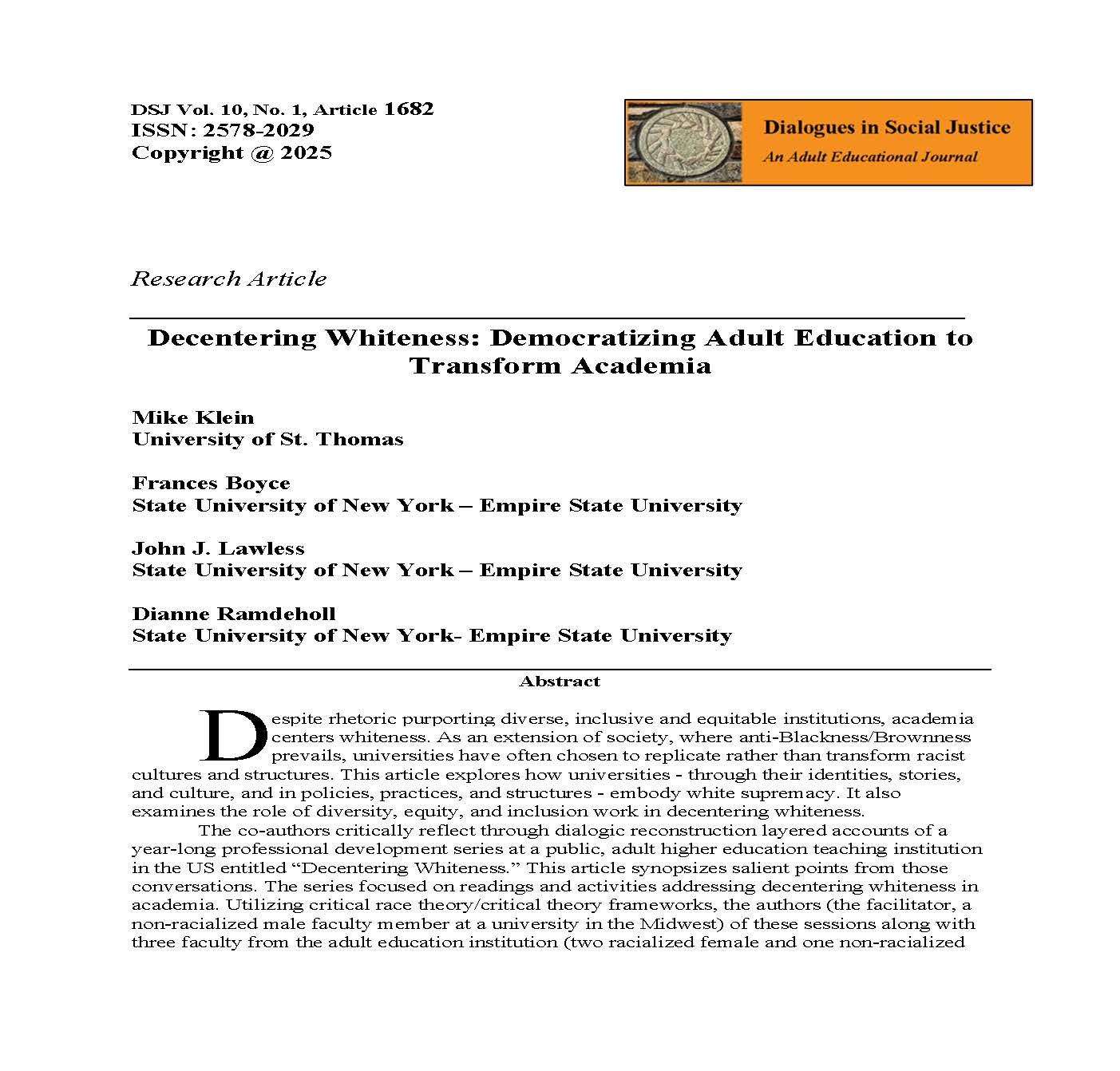Unsettling Whiteness
Democratizing Adult Education to Transform Academia
DOI:
https://doi.org/10.55370/dsj.v10i1.1682Abstract
This article explores ways that universities, through policies, practices, and structures embody white supremacy. As an extension of society, where anti-Blackness/Brownness prevails, universities replicate this racism. Despite rhetoric purporting democratic decision-making, academia centers whiteness. In this environment, Black and Brown bodies are forced to squeeze intospaces not conceived for them. When they don’t fit, they are labeled unfit (Ahmed, 2014). The co-authors share through dialogic reconstruction layered accounts of a year-long professional development effort at a public, adult education institution in New York. This series focused on decentering whiteness in academia. Utilizing critical race theory/critical theory frameworks, the authors (the facilitator of these sessions and three faculty from the adult education institution) collectively interrogate the purposes, processes, and results of these sessions in relation to the of role diversity, equity, and inclusion in unsettling whiteness.
Downloads
Published
Issue
Section
License
Authors who publish with this journal agree to the following terms:
a. Authors retain copyright and grant the journal right of first publication with the work simultaneously licensed under a Creative Commons Attribution License that allows others to share the work with an acknowledgement of the work's authorship and initial publication in this journal.
b. Authors are able to enter into separate, additional contractual arrangements for the non-exclusive distribution of the journal's published version of the work (e.g., post it to an institutional repository or publish it in a book), with an acknowledgement of its initial publication in this journal.
c. Authors are permitted and encouraged to post their work online (e.g., in institutional repositories or on their website) prior to and during the submission process, as it can lead to productive exchanges, as well as earlier and greater citation of published work (See The Effect of Open Access).

